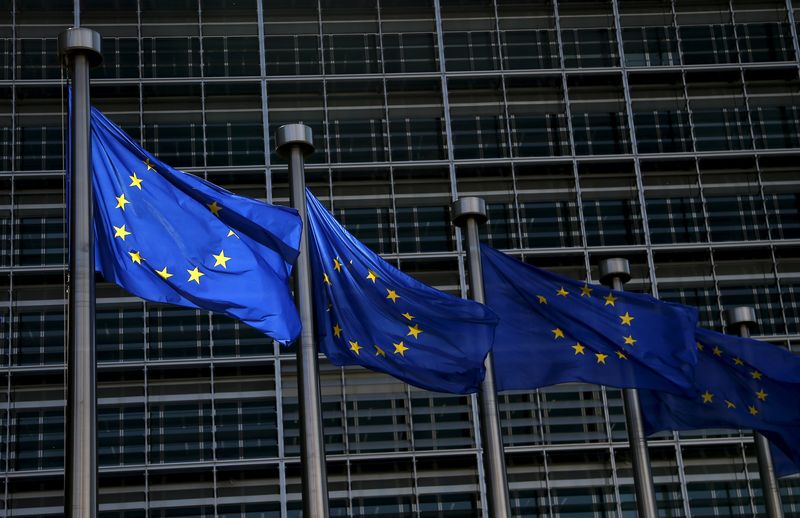LONDON (Reuters) - The world's main economies and trading blocs have announced a series of non-monetary economic support measures to combat fallout from the coronavirus epidemic.
Following is a run-down of the main initiatives, which include tax payment waivers, credit guarantees and cheap loans to business.
The European Union is rechanelling up to 37 billion euros ($41 billion) of funds to sectors hardest hit by the virus but not providing any new money.
It has also said member states can spend as much as they need to counter the effects of the outbreak, with those sums to be excluded from overall calculations of national deficits that must remain below 3% of Gross Domestic Product.
That has created the leeway for a range of stimulus measures across the bloc.
GERMANY
Chancellor Angela Merkel has promised to do what is needed to counter the epidemic's economic impact and the government has promised an initial half a trillion euros in liquidity guarantees for affected businesses.
It has lowered the bar for firms to implement shortened work weeks, for which the labor office has set aside 26 billion euros, and made it easier for companies to defer taxes. The finance ministry is considering setting up an emergency fund to help small and medium-sized companies facing insolvency.
Berlin has not put an official figure on the volume of its measures, but it has federal budget reserves of 48 billion euros and could raise up to 35 billion of new debt if it ditched its balanced budget goal this year.
FRANCE
Paris has established a 45 billion euro package of measures to see companies and workers through the outbreak.
Some 32 billion will be in the form of deferred corporate taxes and payroll charges, and tax waivers for firms at risk of bankruptcy.
Another 8.2 billion has been earmarked to reimburse companies putting workers on reduced working schedules, and 2 billion for small firms in the restaurant or tourism sectors that have had to close.
The government is also guaranteeing up 300 billion euros in new bank loans to companies to ensure credit keeps flowing.
BRITAIN
The government has announced 12 billion pounds ($14.5 billion) of support for business and the health service.
Support measures include a temporary exemption from property taxes for 900,000 small firms, and one-off grants of 3,000 pounds to 700,000.
On Tuesday, it was to unveil further rescue plans for businesses as budget forecasters said borrowing needed might resemble the immense debt splurge of World War Two.
JAPAN
Tokyo is working on a stimulus package of up to $193 billion that may include cash payouts to households and subsidies to tourism companies hit by a slump in visitors, officials say.
Last week it announced 430.8 billion yen ($4.1 billion) of extra spending, much aimed at supporting affected small and medium-sized businesses.
The government will also fund upgrades to medical facilities, and subsidize working parents forced to go on leave because of closed schools.
($1 = 0.8270 pounds)
